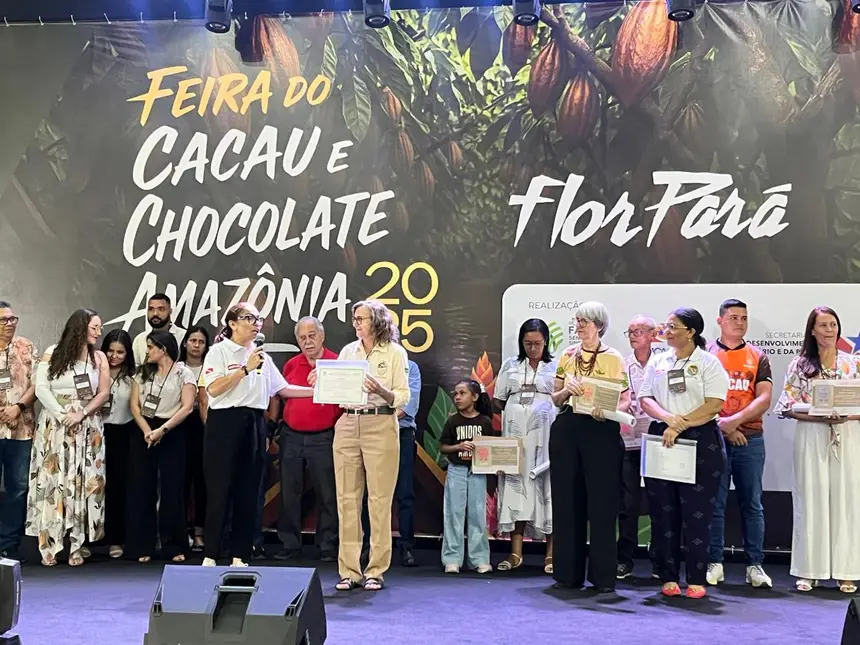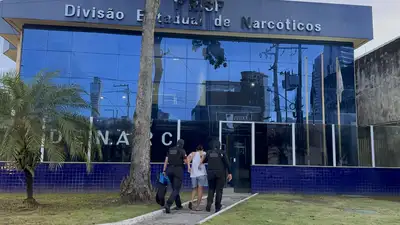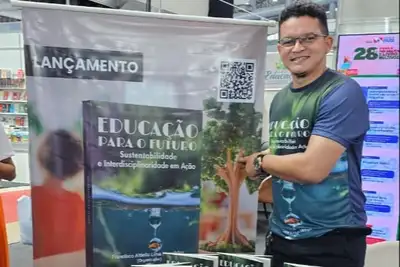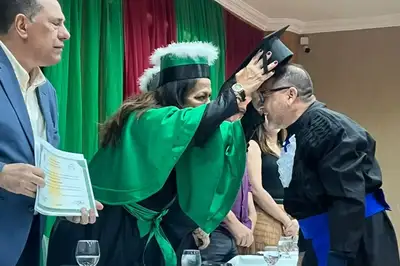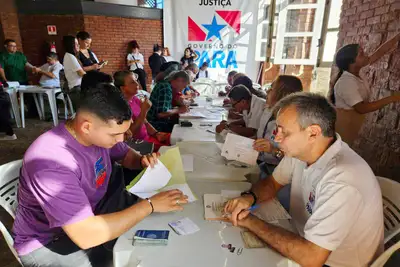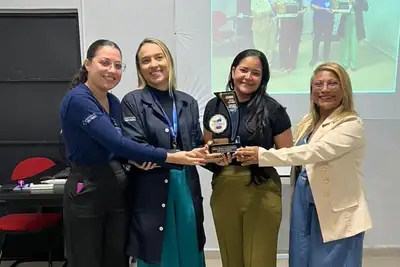Adepará delivers certificates to two chocolate agro-industries from Brasil Novo
The stand of the Agricultural Defense Agency of Pará received 400 people during the Cocoa and Chocolate and Flor Pará Fair, at Hangar, in Belém
The Agricultural Defense Agency of Pará (Adepará) officially delivered the artisanal registration certificates to two chocolate-producing agro-industries from the municipality of Brasil Novo, in the Transamazon region, during the Cocoa and Chocolate and Flor Pará Fair 2025, from the 5th to the 8th of this month, at Hangar, in Belém.
The certified factories are “Chocolate Cacau Xingu”, which was granted registration in March 2025, and “Kakao Bluemenn Chocolates”, certified in May 2025 to produce 20 types of artisanal chocolate with regional flavors.
With the granting of the registrations, the agro-industries will be technically monitored by Adepará, ensuring that the manufacturing processes comply with current sanitary legislation, which guarantees traceability, origin, and quality of the products, in addition to strengthening credibility with the consumer market and expanding marketing opportunities.
According to the plant inspection manager of Adepará, Joselena Tavares, the certification marks an important advance in the formalization and appreciation of products from Amazonian sociobiodiversity.
“The registration of these agro-industries is a collective achievement that brings together technique, cultural identity, and female leadership. Seeing women at the forefront of enterprises that produce award-winning chocolates from Amazonian cocoa, cultivated in agroforestry systems, is a concrete demonstration that it is possible to generate income, conserve the forest, and ensure food security. The artisanal plant seal granted by Adepará ensures that these products meet the hygienic-sanitary criteria required by legislation, strengthening access to markets and stimulating sustainable practices. This is how we directly contribute to achieving the Sustainable Development Goals (SDGs) by promoting productive inclusion, valuing sociobiodiversity, and strengthening family farming in Pará.”
For producer Jiovana Lunelli, from Cacau Xingu, the seal validates an entire artisanal process that goes from the cultivation of the beans to the final chocolate preparation, using selected ingredients and respecting sustainable practices. “This seal is very important because it guarantees safety for both producers and consumers. It helps to promote cocoa cultivation in the state and in the municipality of Brasil Novo and will add much more value to our product in the sense that we work with organic cocoa in an agroforestry system, respecting sustainability and the living forest,” she emphasized.
With five award-winning chocolates and holder of the best cocoa bean in Brazil, Bluemenn Chocolates now also has the artisanal plant seal from ADEPARÁ.
“The artisanal seal means that we are within the manufacturing parameters according to the legislation, both in the cocoa production and in the chocolate production. The space where we produce the chocolate, the methodologies we use in manufacturing follow a required standard, which is why we are receiving this seal, and for us, it is extremely important to know that we now have the artisanal seal, as there are few chocolates in Pará that have this seal,” celebrates Verônica Preuss.
Visitation - During the fair, Adepará was present with an institutional stand, promoting sanitary education actions and disseminating products inspected by the state service. Visitors were able to learn about flours, farofas, tapiocas, hot sauces, and vacuum-packed cassava, all from registered agro-industries in different regions of Pará.
In addition to plant-based products, the exhibition also featured animal-based foods, such as cheeses, yogurts, and liquid eggs, demonstrating the diversity of Pará's agro-industrial production. Over the four days of the event, more than 400 people visited the Agency's space.
Discussion Forum - The Defense Agency also participated in discussions involving the cocoa chain, such as pest prevention. The topic captured the attention of rural producers from various regions participating in the Cocoa Cultivation Forum.
In one of the programs, the director of Plant Defense and Inspection, Lucionila Pimentel, mediated the lecture by agronomist Paulo Albuquerque from the Ministry of Agriculture and Livestock (MAPA) and the Cocoa Crop Commission (CEPLAC), which addressed the control and management of moniliasis, a pest that threatens cocoa plantations and is already present in the states of Acre and Amazonas.
In light of the challenges for disease prevention in the state, official agencies are acting on several fronts involving pest management.
“The Department of Plant Sanitation, together with CEPLAC and state plant defense agencies, has been working since 2013 on the National Moniliasis Prevention Plan, which was the first containment plan for plant diseases in Brazil. This plan is supported by six pillars: focus prospecting, containment actions, personnel training because without technical training you will end up spreading the disease more, sanitary education, which involves not only producers but society as a whole, in addition to the movement of plant material and research,” highlighted Albuquerque.
At the event, Adepará also participated in the cocoa sector chamber, an event that brings together public institutions, private initiatives, and producers, a meeting that discusses public policies for the cocoa sector and presents alternatives for producers to conquer new market niches.
“The best cocoa producers today are on the podium, being awarded for the best beans. And we have an obligation to strengthen strategic partnerships to ensure a sustainable future for cocoa cultivation in our state, with certification, traceability, and free from diseases and pests,” said Lucionila Pimentel, director of plant defense and inspection at Adepará.









